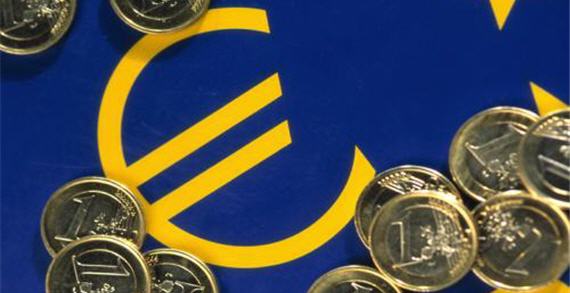Europe: Reason for Optimism?
 While I’ve been skeptical for awhile about whether the Euro can — or should — survive the present crisis, key governments are now starting to address their own budget crises, finally giving some reason for optimism.
While I’ve been skeptical for awhile about whether the Euro can — or should — survive the present crisis, key governments are now starting to address their own budget crises, finally giving some reason for optimism.
My New Atlanticist piece, “Euro Crisis: Light at the End of the Tunnel?” details the reasons for skepticism, including increasing evidence that Germany — along with other Northern European states — is getting tired of backstopping the profligacy of their weak sisters to the South, that the steps taken thus far are mere Band Aids, and so forth. And these still alarm me greatly.
The good news is that, after putting off the inevitable for far too long, many European players are now taking bold steps to deal with the fundamentals. Spiegel (“Italy Joins Europe’s Wave of Belt-Tightening”) reports:
Italy’s government approved a €24 billion ($30 billion) austerity package Tuesday evening, less than two months after Prime Minister Silvio Berlusconi claimed his country could survive the euro crisis without drastic cuts.
[…]
The cuts follow similar austerity measures in Spain, Portugal, and Great Britain. Germany, after backing a massive €750 billion package of loans to ensure other EU governments can meet their debt payments, will have to decide in June how to slash €3 billion from its own budget.
The aim is to save the euro’s currency union from breaking apart despite pressure from financial traders skeptical of debt and deficit levels in Europe.
“It’s absolutely necessary to do our part for Europe; to contribute to the financial stability of monetary union and to economic growth,” Italian President Giorgio Napolitano said on Tuesday in Washington.
But early reaction from economists was positive. “The combination of these austerity measures with even a mediocre improvement in growth should be enough to bring the deficit below 3 percent of GDP by 2012,” said Deutsche Bank economist Gilles Moec, according to Reuters. “The fairytale is over,” wrote La Repubblica, a pro-opposition paper, on Wednesday in reaction to the government’s about-face.
Ralf Beste, Christian Reiermann and Merlind Theile, also of Spiegel, note (“Germany Tries to Plug Gaping Hole in Its Budget”) that Merkel, in particular, faces “an enormous challenge.” But the fact that key players are at least facing up to the key issues is reassuring.






At the time the Euro was introduced there was a lot of talk about becoming the world’s reserve currency and displacing the dollar, etc, etc. I never bought into it and didn’t really care if it displaced the dollar since that would mostly mean that we wouldn’t be able to run permanent deficits.
The people who thought it would replace the dollar pointed to the fact that the Euro-zone was larger than the U.S. I thought about the fact that there were many different languages and that labor mobility would be restrained as a result. I also thought that Europe wasn’t really prepared to liberalize their economies in a way that would make a single currency work for them, like going with at will employment, or for that matter do anything that would make their labor markets more liberal. I was right.
Having said all of that, let’s keep our fingers crossed that none of the Euro countries actually default because it will make recovery for the world that much harder.
Will be interesting to see what they cut. Wanna bet they are all out of Afghanistan soon?
Steve